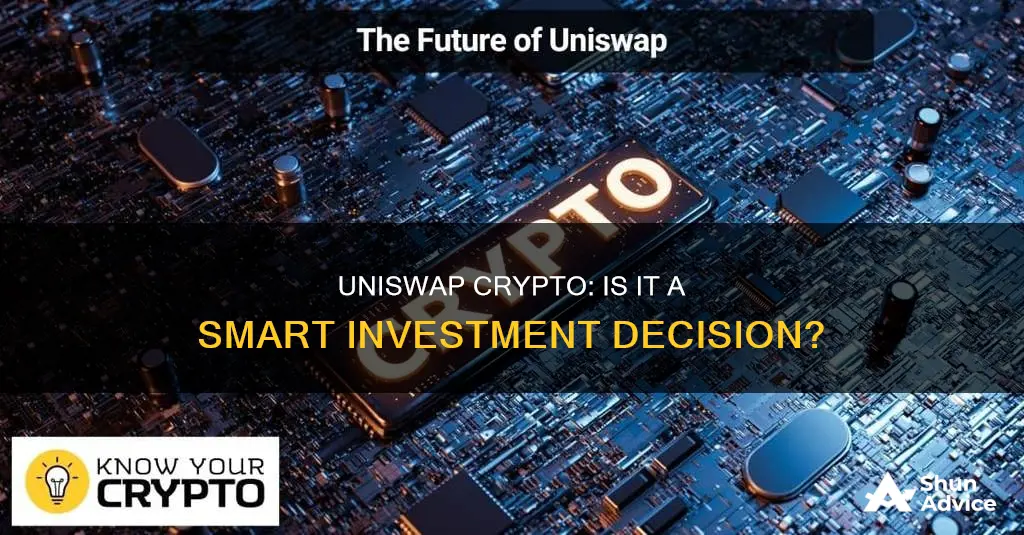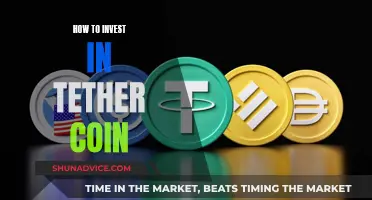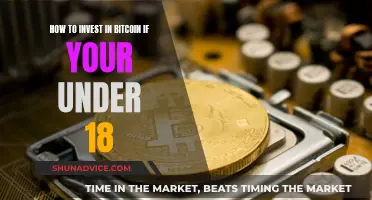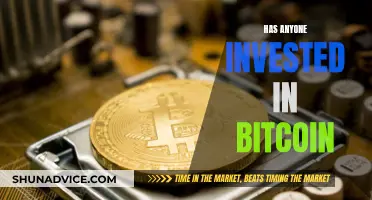
Uniswap is an automated, Ethereum-based, decentralised exchange (DEX) with its own governance token, UNI. It is the largest DEX in the world in terms of market capitalisation and the most popular Ethereum Dapp in the market. UNI tokens can be purchased on exchanges such as Uphold, Coinbase, and Kraken.
UNI tokens give investors a voice in future project developments, and users can earn a percentage of swap fees each time a user participates in the Uniswap exchange. UNI was introduced in September 2020 and has since become the 13th largest cryptocurrency by total market capitalisation.
Uniswap's decentralised exchange protocol provides investors and traders with a quick way to swap any ERC-20 token for another supported ERC-20 token or Ethereum. It is built on the existing Ethereum network technology, making its token (UNI) an ERC-20 token that can be stored in almost any type of wallet that supports Ethereum.
Uniswap's system has a built-in guaranteed swap rate, which means that the system will fail to execute your order if it sees a sudden price movement against your favour. The decentralised exchange system also allows investors access to a larger liquidity pool.
What You'll Learn

Uniswap's native token, UNI, is a governance token
Uniswap is a leading decentralised crypto exchange that runs on the Ethereum blockchain. It is also the largest decentralised exchange (DEX) in the world in terms of market capitalisation. As a DEX, Uniswap offers a safer alternative to large centralised exchanges that operate in a custodial manner.
UNI was introduced in September 2020 in an effort to prevent users from defecting to rival DEX SushiSwap. UNI tokens were distributed to anyone who had ever used the platform. Each person received 400 UNI tokens, which amounted to over $1,000 at the time.
UNI is designed to be used in the future governance of the Uniswap protocol. Holders of 1% or more of the total UNI supply can submit development proposals, while any UNI holder can vote on these proposals. UNI holders can also help fund grants, partnerships, liquidity mining pools, and more.
UNI can also be used for speculation and investment, or as an alternative to expensive and slow international transfers. It can also contribute to an alternative financial system for the hundreds of millions of people that have access to smartphones but not a bank account, while also introducing a new opportunity for income generation or supplementation through UNI liquidity staking.
Smart Ways to Invest $20 in Bitcoin
You may want to see also

Uniswap is a leading decentralised exchange (DEX)
Uniswap is fully decentralised, meaning it isn't owned and operated by a single entity. It uses an automated liquidity protocol, which is a relatively new type of trading model. This protocol incentivises people trading on the exchange to become liquidity providers (LPs). Users pool their money to create a fund used to execute all trades on the platform. Each token listed has its own pool that users can contribute to, and token prices are determined using a mathematical algorithm.
Uniswap's decentralised nature has several benefits. It eliminates the power and control accumulated by major exchanges, such as Binance and Coinbase, and provides new businesses with access to international liquidity. It also offers traders a safer alternative to large centralised exchanges, as users maintain control of their funds at all times. There is no order book, and the varying fees are determined by current market conditions, going directly back to users who provide liquidity on the exchange.
Uniswap's token, UNI, is a governance token, which gives investors a voice in future project developments. UNI was introduced on 16 September 2020 and has since become the 13th largest cryptocurrency by total market capitalisation.
Trinidad and Tobago's Bitcoin Investment Strategy
You may want to see also

Uniswap is an automated liquidity protocol
Uniswap is a completely different type of exchange that is fully decentralized and uses an automated liquidity protocol. It is compatible with all ERC-20 tokens and infrastructure such as wallet services like MetaMask and MyEtherWallet. It is also completely open-source, which means anyone can copy the code to create their own decentralized exchanges.
Uniswap runs on two smart contracts: an "Exchange" contract and a "Factory" contract. These are automatic computer programs that perform specific functions when certain conditions are met. The factory smart contract is used to add new tokens to the platform, and the exchange contract facilitates all token swaps, or "trades".
The way Uniswap solves the liquidity problem of centralized exchanges is through an automated liquidity protocol. This works by incentivizing people trading on the exchange to become liquidity providers (LPs). Uniswap users pool their money together to create a fund that is used to execute all trades that take place on the platform. Each token listed has its own pool that users can contribute to, and the prices for each token are worked out using a math algorithm run by a computer.
With this system, a buyer or seller does not have to wait for an opposite party to appear to complete a trade. Instead, they can execute any trade instantly at a known price, provided there is enough liquidity in the particular pool to facilitate it. In exchange for putting up their funds, each LP receives a token that represents the staked contribution to the pool. For example, if you contributed $10,000 to a liquidity pool that held $100,000 in total, you would receive a token for 10% of that pool. This token can be redeemed for a share of the trading fees.
Uniswap's native token, UNI, is known as a governance token. This gives holders the right to vote on new developments and changes to the platform, including how minted tokens should be distributed to the community and developers, as well as any changes to fee structures.
Sports Cryptocurrency: Worth Investing or Just a Fad?
You may want to see also

Uniswap's role in the Decentralised Finance (DeFi) ecosystem
Uniswap is a leader within the decentralised finance (DeFi) ecosystem. It is one of the largest decentralised cryptocurrency exchanges by transaction volume. As a decentralised exchange (DEX), it runs on the Ethereum blockchain and enables peer-to-peer (P2P) cryptocurrency trades without order books or a central intermediary.
Uniswap uses a liquidity pool model that relies on automated smart contracts to enable prospective traders to access user-funded token reserves as the primary source of market liquidity. Anyone can swap tokens, contribute tokens to a pool and earn fees, or list a token on Uniswap.
Liquidity providers add tokens to Uniswap pools and are rewarded with a fee proportional to their share of the pool. Each market pair of ERC-20 tokens held in a liquidity pool is governed by an automated market maker (AMM) built to accept one token for the other by maintaining the "constant product" formula of x*y=k. In this formula, x and y are variables that represent the total value of one token in the market pair. Uniswap multiplies these two numbers together to determine k, which represents the market pair's pool liquidity.
The core requirement underpinning trades on Uniswap is that pool liquidity remains constant, even as the values of x or y change. As a result, while every trade impacts the price of x and y, liquidity remains constant. For example, if a trader buys 1 ETH in exchange for 330 DAI, the ratio of ETH in the liquidity pool decreases, while the DAI ratio increases to accommodate one less ETH in the pool and 330 more DAI tokens. Consequently, the price of ETH will increase, while the price of DAI drops. This formula ensures the maintenance of fair market value while always maintaining liquidity.
Uniswap's role in the DeFi ecosystem is significant. It is a pioneer of liquidity pool mechanisms and the wider DeFi ecosystem. As a decentralised platform, it removes the power and control accumulated by major centralised exchanges, such as Binance and Coinbase. It also provides new businesses with access to international liquidity.
Uniswap's open strategy enables new projects to release their tokens directly to the market and attract a wider audience. It also solves the problem of high spreads for illiquid assets on order-book exchanges. By seeding liquidity pools, new projects can build investor confidence and provide ROI opportunities via arbitrage trades.
Furthermore, Uniswap's non-custodial nature means it never holds users' funds directly, removing the risks associated with centralised platforms, where large amounts of users' cryptocurrency are kept in network wallets, making them prime targets for hackers.
Uniswap also offers more privacy protection than centralised exchanges. Its permissionless nature means it requires no KYC (know your customer) and allows users to trade without registering or logging in.
In summary, Uniswap plays a vital role in the DeFi ecosystem by offering a decentralised platform for peer-to-peer cryptocurrency trading, providing liquidity, and addressing the limitations of centralised exchanges.
VidyCoin Investment: Worthwhile or Risky Venture?
You may want to see also

Uniswap's potential for future growth
Decentralized Nature: Uniswap is a decentralized exchange (DEX) built on the Ethereum blockchain, eliminating the need for intermediaries. This feature addresses the issues with centralized exchanges, such as security risks and high fees, and provides users with more control over their funds.
Liquidity and Trading Options: Uniswap offers a unique liquidity protocol that incentivizes users to become liquidity providers. This protocol ensures sufficient liquidity for instant trades and provides users with access to a larger pool of ERC-20 tokens for swapping. The decentralized nature of Uniswap also creates price differences with centralized exchanges, presenting arbitrage opportunities for traders.
Governance and Community-Led Growth: Uniswap introduced its native token, UNI, a governance token that gives holders voting rights on platform developments. This feature empowers users to have a say in the project's future, including treasury usage and network upgrades. The community-driven approach positions Uniswap for community-led growth and self-sustainability.
Innovation and Adoption: Uniswap plays a pivotal role in driving innovation and adoption across the crypto market. Its automated market maker system and arbitrage traders work together to keep token prices in line with the broader market. Additionally, Uniswap's open nature and simplistic interface have contributed to its rising popularity.
Addressing Key Challenges: Uniswap tackles critical challenges in the crypto space. It helps reduce the power and control accumulated by major centralized exchanges and provides new businesses with access to international liquidity. This makes Uniswap an essential launchpad for decentralized finance (DeFi) projects.
Security and Privacy: Uniswap's non-custodial nature ensures that users' funds are never held directly on the platform, reducing the risk of losses in the event of a hack. Additionally, the platform's open-source code has undergone rigorous review by the development community, enhancing its security. DEXs, like Uniswap, also offer improved privacy protection compared to centralized exchanges.
Uniswap's current market leadership, innovative features, and ability to address key challenges in the crypto space indicate strong potential for future growth. However, it is important to remember that the crypto market is highly volatile, and investors should carefully consider their risk tolerance and conduct thorough research before investing.
The Future of Crypto.com Coin: Is It Worth Investing?
You may want to see also







